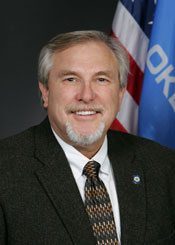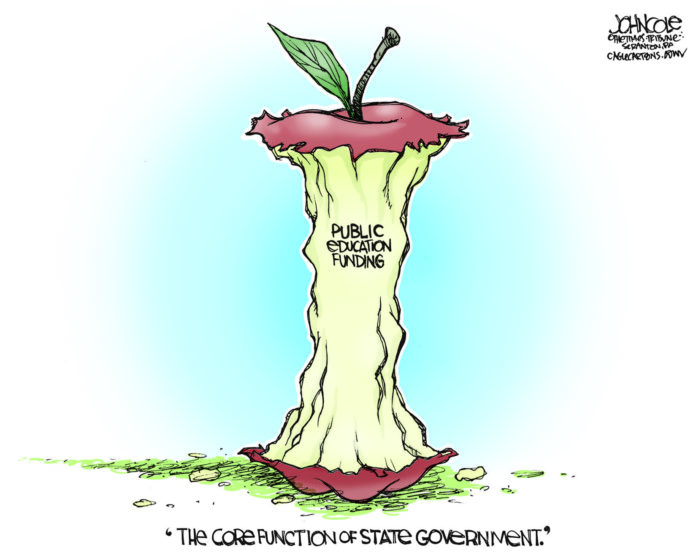BY DAVID PERRYMAN
 The impact of the Great Depression was most severe on the elderly and the young. For instance, while one-third of the nation was ill-housed, ill-clad and ill-nourished, 42% of all of the poverty stricken Americans were under 16 years old.
The impact of the Great Depression was most severe on the elderly and the young. For instance, while one-third of the nation was ill-housed, ill-clad and ill-nourished, 42% of all of the poverty stricken Americans were under 16 years old.
In Dear Mrs. Roosevelt: Letters From Children of the Great Depression, Robert Cohen compiled the thousands of letters that Eleanor Roosevelt received from despondent children and teens writing to ask for shoes, clothing, books, and transportation they so badly needed to attend school.
The letters underscore that the economic crisis of the Depression was wrapped around an educational crisis that threatened the very fabric of our country. Diminishing tax revenues closed some 20,000 schools in rural America in 1934 and shortened school terms.
President Roosevelt’s conviction that a just society affords all – not just the affluent – access to education was the reason that from 1933 to 1939 New Deal funds assisted 70% of all new school construction and prevented tens of thousands of school closures by providing emergency funding to pay teachers. By the end of the Depression, needy students had received more than a billion free school lunches.
In February, State Superintendent Joy Hofmeister and the State Board of Education proposed changes to the Administrative Rules relating to “Mandatory Annexation.” Many Oklahomans believed that rural schools had avoided “forced consolidation” for this legislative term. However, with these changes, all public schools are at risk of being closed by the State Board of Education simply because the state legislature fails to properly fund public education.
The threats in the new rules appear in Rule 210:1-3-2 (b)(1) and allow the State Board to bypass local school districts and force the consolidation of school districts when a school is 1] determined to be in need of improvement, 2] is non-accredited by the State Board, 3] is unable to commence a school year, except for a normal delay beyond the control of the school, 4] is financially unable to keep the school open for the entire year, or 5] the subject of an audit finding that some person associated with the school mismanaged funds.
Oklahoma’s public schools have weathered hostile consolidation legislation this year. Parents and teachers across the state banded together to protect the local control of their students’ education.
Now, not only are public school parents and students still faced with the harmful effect of voucher legislation, if these rules become effective, anti-public school legislators will be capable of placing public schools at risk of consolidation merely by failing to properly fund them.
This ain’t no new deal, it’s more of the same.
If you are concerned about protecting public education, you may make comments on these proposed rule changes by email to rules@sde.ok.gov or by fax to the Legal Services Office at 405.521.6256. Comments must be received by 4:30 p.m. on March 17. A public hearing is scheduled for 2:00 p.m. on March 17 at the Hodge Education Building, State Board Room – Room 1-20, 2500 N. Lincoln Blvd., in Oklahoma City.
Persons wishing to speak must sign in at the door of the State Board Room prior to the start of the hearing and time limitations may be imposed to ensure that all persons who wish to speak will have an opportunity to do so.
– David Perryman, a Chickasha Democrat, represents District 56 in the Oklahoma House








How do we get this article to as many school teachers so they could get the idea to send letters to the Governor’s office — I would love to deliver those letters to the public hearing on the 17th!